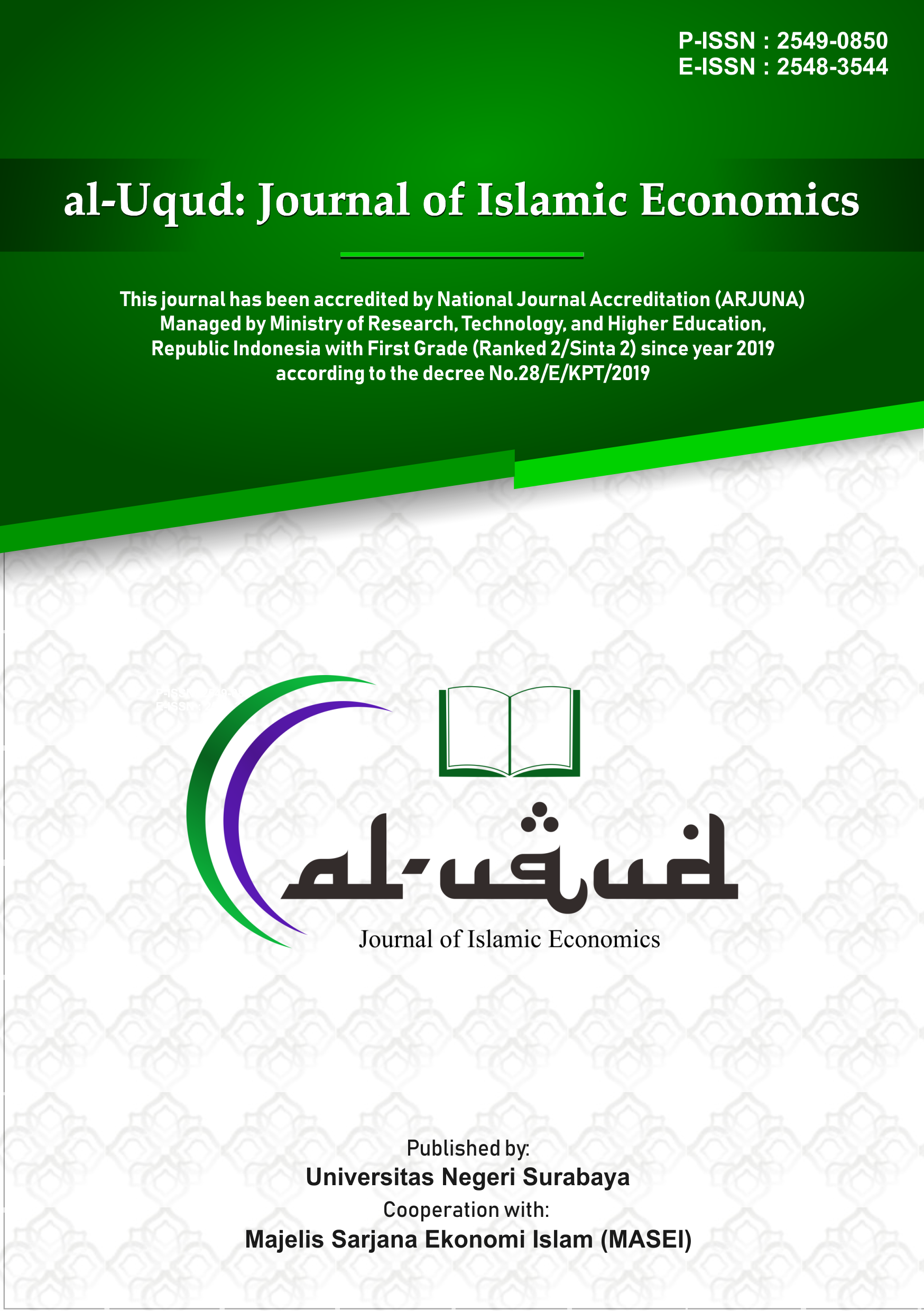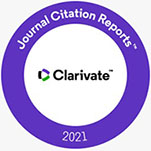Shaping financial futures: How does quran surah Yusuf discuss the instruments of the state financial policy?
DOI:
https://doi.org/10.26740/aluqud.v8n1.p42-55Keywords:
Financial futures, Financial instruments, Surah Yusuf, State financial policyAbstract
This research presents an in-depth analysis of state financial policy, taking inspiration from the interpretation of the Prophet Yusuf's dream immortalised in Surah Yusuf. Using a qualitative approach and a literature review method that combines tafsir bi al ma'tsur and tafsir bi ra'yi, this research discusses each verse in detail, exploring the relevance of the findings to current scientific developments. The main findings include the seven-year cycle, the basis for formulating state financial policies, instruments based on food security strategies, and the determining phases for a country that can prosper or decline. This conclusion underlines the importance of the first and second cycles as policy foundations that should be addressed, opening new insights into understanding and designing state financial policies.
References
Abdillah, M. (2001). Agama Ramah Lingkungan Perspektif al- Quran. Jakarta: Paramadina.
Chenet, H., Ryan-Collins, J., & van Lerven, F. (2021). Finance, climate-change and radical uncertainty: Towards a precautionary approach to financial policy. Ecological Economics, 183, 106957. https://doi.org/10.1016/j.ecolecon.2021.106957
Efendi, R. (2003). Produksi dalam Islam. Jogjakarta: Magistra Insania Press.
Geddes, A., & Schmidt, T. S. (2020). Integrating finance into the multi-level perspective: Technology niche-finance regime interactions and financial policy interventions. Research Policy, 49(6), 103985. https://doi.org/10.1016/j.respol.2020.103985
Harahap, S. (1999). Islam: Konsep dan Implementasi Pemberdayaan. Yogyakarta: Tiara Wacana Yogya.
Jahanger, A., Usman, M., Murshed, M., Mahmood, H., & Balsalobre-Lorente, D. (2022). The linkages between natural resources, human capital, globalization, economic growth, financial development, and ecological footprint: The moderating role of technological innovations. Resources Policy, 76(January), 102569. https://doi.org/10.1016/j.resourpol.2022.102569
Katadata. (2023). Indonesia Impor Beras 3 Juta Ton pada 2023, Terbesar dalam Lima Tahun. Retrieved April 16, 2024, from Katadata Media Network
Khaldun, I. (1967). The Muqaddimah: An Introduction to History. In The Muqaddimah (Vol. 33). Princeton University Press. https://doi.org/10.2307/40097061
Lewis, A., Koukoura, A., Tsianos, G. I., Gargavanis, A. A., Nielsen, A. A., & Vassiliadis, E. (2021). Organ donation in the US and Europe: The supply vs demand imbalance. Transplantation Reviews, 35(2), 100585. https://doi.org/10.1016/j.trre.2020.100585
Schleifer, P., & Sun, Y. (2020). Reviewing the impact of sustainability certification on food security in developing countries. Global Food Security, 24(February 2019), 100337. https://doi.org/10.1016/j.gfs.2019.100337
Skousen, M. (2015). The Big Three in Economics: Adam Smith, Karl Marx, and John Maynard Keynes: Adam Smith, Karl Marx, and John Maynard Keynes (1st Editio). New York: Routledge.
Syekh, S. (2013). Sekilas Pengantar Ilmu Ekonomi dan Pengantar Ekonomi Islam. Jakarta: Referensi.
Tran, D. V., Hassan, M. K., Alam, A. W., Pezzo, L., & Abdul-Majid, M. (2021). Economic policy uncertainty, agency problem, and funding structure: Evidence from U.S. banking industry. Research in International Business and Finance, 58(September 2020), 101470. https://doi.org/10.1016/j.ribaf.2021.101470
Zaremba, A., Aharon, D. Y., Demir, E., Kizys, R., & Zawadka, D. (2021). COVID-19, government policy responses, and stock market liquidity around the world: A note. Research in International Business and Finance, 56(2016), 101359. https://doi.org/10.1016/j.ribaf.2020.101359
Downloads
Published
How to Cite
Issue
Section
License
Copyright (c) 2024 The author(s)

This work is licensed under a Creative Commons Attribution 4.0 International License.
CC BY 4.0 Abstract views: 425
,
Abstract views: 425
, PDF Downloads: 454
PDF Downloads: 454








